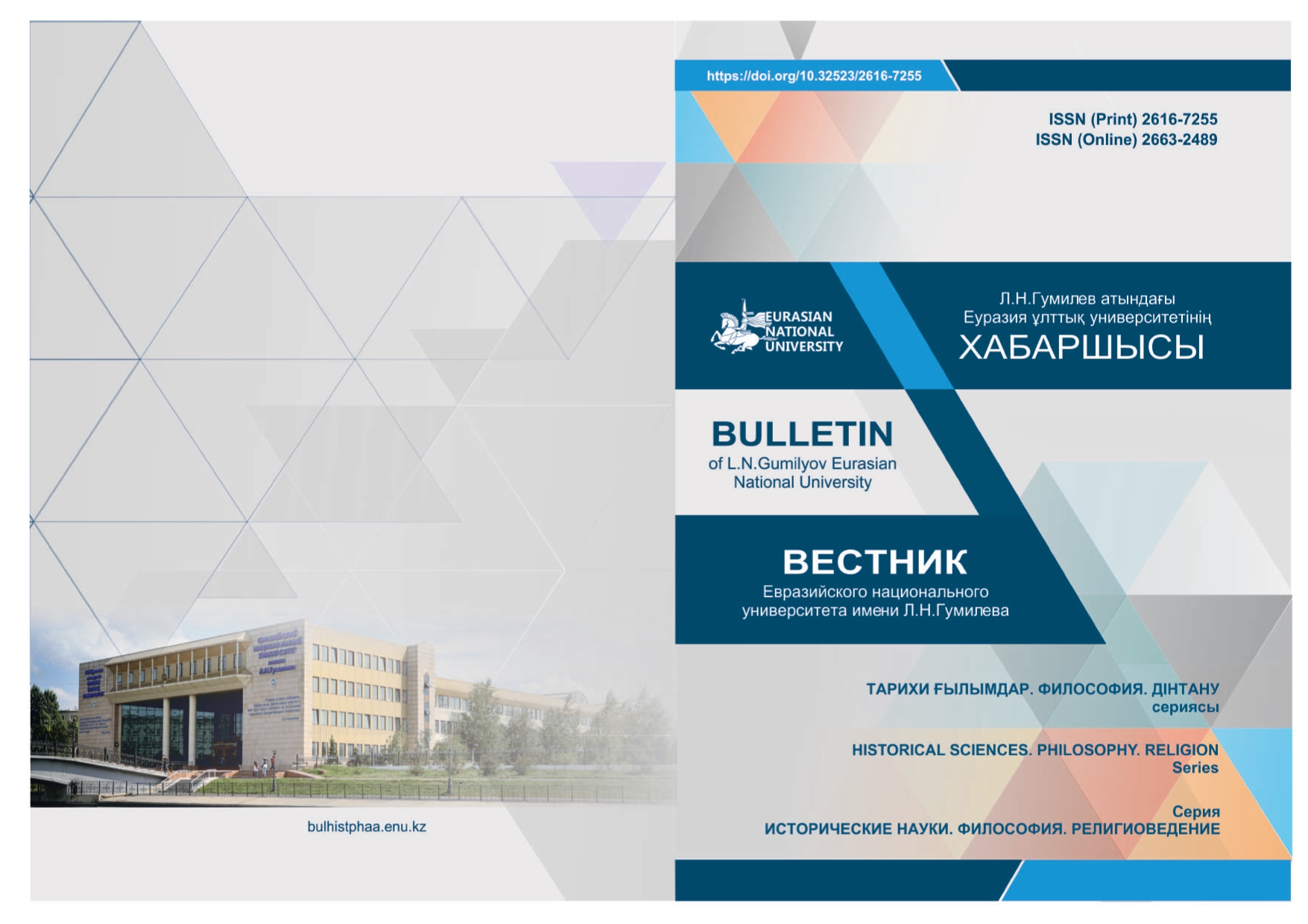Merchantry as a social institution of Kazakh society: Russian and Kazakhstani historiography
Views: 237 / PDF downloads: 295
DOI:
https://doi.org/10.32523/2616-7255-2023-144-3-23-38Keywords:
Historiography; trade; fairs; estate; merchants; bay; entrepreneur; bourgeoisie; charity; patronage.Abstract
This article provides a historiographical review of scientific works devoted to the history of the merchants of Kazakhstan, their role in the socio-economic and cultural development of the country in the second half of the XIX – early XX century. Scientific interest in the figure of a merchant-entrepreneur, a bay, the creator of a trading network, industrial enterprises, a philanthropist and a benefactor is justified, as it makes it possible to more clearly represent his social function, and through this to outline the corresponding qualities of merchants. Up until the late 1980s. in the Russian historical science, merchants were given obviously insufficient attention, the history of merchants was ignored as an object and subject of research. Merchants in Kazakhstan in different historical periods played an important role in the economy and culture of the region. Studying the history of merchants can reveal many aspects of the life of this class group, as well as its interaction with other social groups. Historiographical analysis of the history of the merchants of Kazakhstan in the second half of the XIX – early XX centuries. contributes to the objective reflection of studies published in various periods: pre-revolutionary (pre-Soviet), Soviet, post-Soviet (modern) periods of the history of Kazakhstan. The historiographical analysis is relevant from the point of view of modern discussions about the contribution of merchants to the socio-economic development of cities, charity, culture of Kazakhstan. The revival of entrepreneurship, modern socio-economic processes encourage scientists to study this problem in depth.
Downloads

Downloads
Published
How to Cite
Issue
Section
License
Copyright (c) 2023 Gulzhan K. Yermenbayeva, Lepuda K. Mukatayeva, Zhanna S. Mazhitova, Zhazira O. Khassenova

This work is licensed under a Creative Commons Attribution-NonCommercial 4.0 International License.







